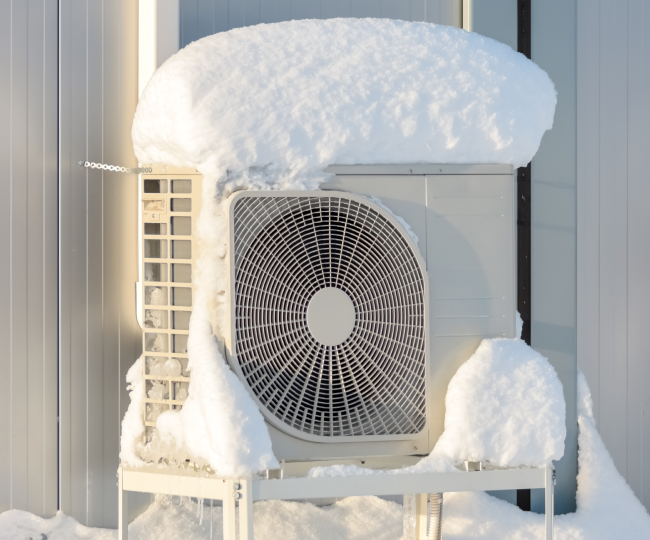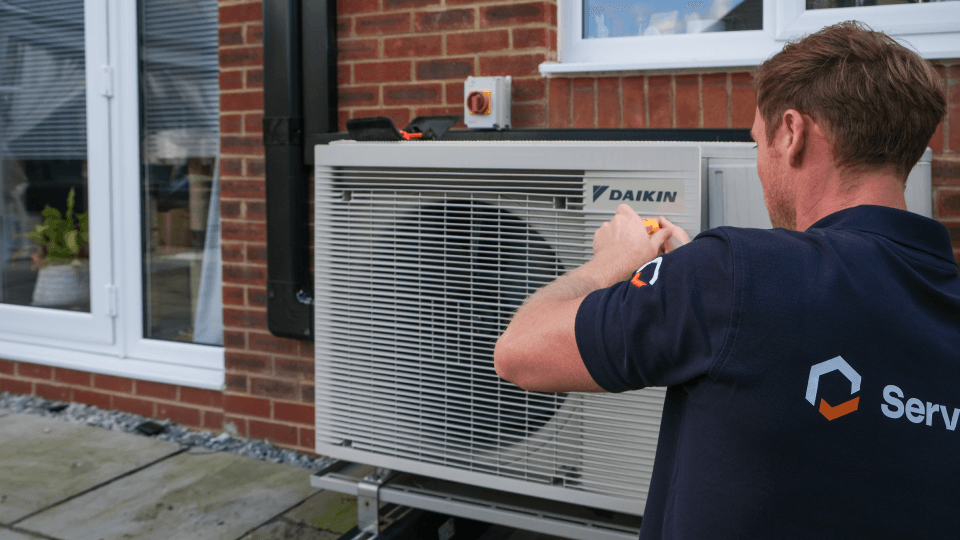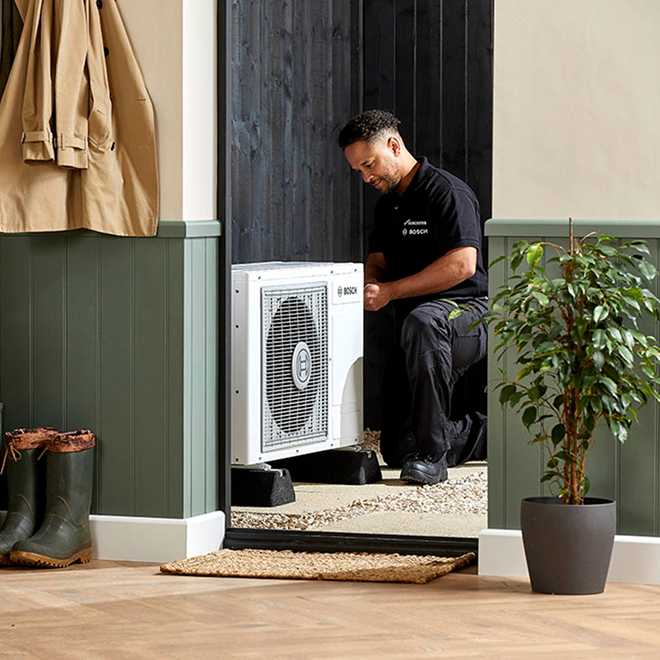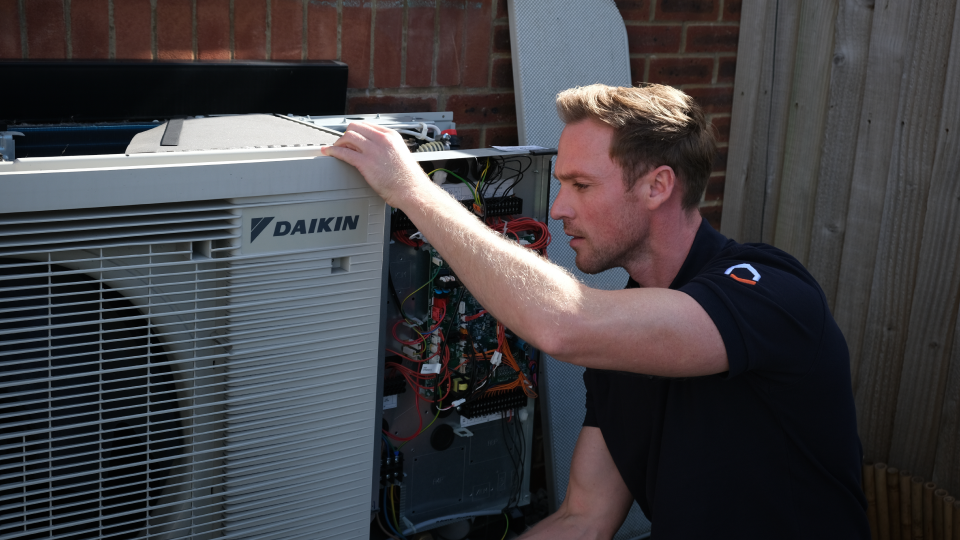Did you know that heating our homes is one of the biggest contributors to household carbon emissions today? Gas and oil boilers are the traditional sources we all know, but they come with a heavy environmental cost.
Air Source Heat Pumps (ASHPs) offer a cleaner, more financially efficient alternative – and the carbon savings are significant.
Why do those savings matter more than ever in today’s world? And why is regular servicing essential for your system to deliver the promised environmental and financial benefits for the future?
Switching from gas or especially oil heating to an air source heat pump will bring an immediate and significant drop in your home’s carbon emissions – often worth thousands of kilograms of CO₂ annually.
This doesn’t just benefit the climate – it also positions your home for a more resilient, future-proof energy system.
If you want lower bills, a smaller footprint, and to help tackle the climate crisis with a cleaner solution, the real-world carbon savings of a heat pump matter more than ever.
Find out how much carbon an air source heat pump can save compared to gas or oil heating – and why these savings matter for the planet as much as they do.
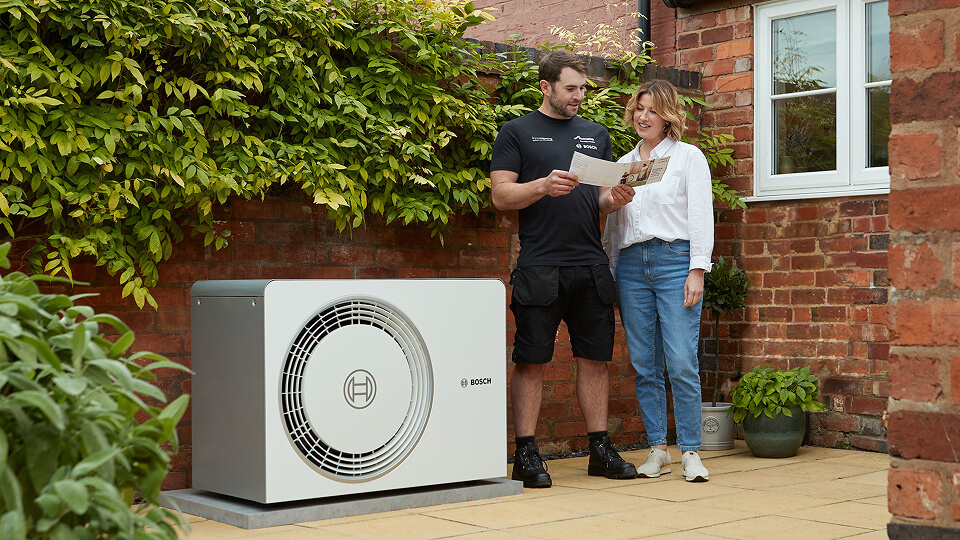
The real carbon savings of switching
When you trade a gas or oil boiler for an air source heat pump, the difference to your carbon footprint is immediate and significant. Heat pumps don’t burn fuel – they simply move heat from the outside air into your home, making them far cleaner to run than boilers that rely on fossil fuels.
- Did you know that on average, a heat pump can cut between 1.4 and 4 tonnes of CO₂ every year compared to a traditional heating system? That’s the equivalent of taking a family car off the road for a whole year or planting more than 60 mature trees and letting them grow for 12 months.
Those savings aren’t just numbers on a chart – they’re a direct reduction in the greenhouse gases released into the atmosphere.
For every household making the switch, the collective impact grows. Multiply that across a street, neighbourhood, or housing development, and the results are even greater.
What factors influence carbon reductions when using heat pumps?
The carbon reductions you get from an air source heat pump depend on several important factors:
- The grid mix: the cleaner the electricity powering your heat pump, the bigger the savings you’ll make. If your home is on a renewable tariff or paired with solar, the carbon footprint can drop close to zero. Even in fossil-fuel-heavy grids, emissions remain lower than gas or oil heating.
- Efficiency of the unit: high-performing models (* with a COP of 3 – 4 or more) generate three to four units of heat for every unit of electricity, multiplying the carbon savings.
- What it replaces: getting rid of the old, inefficient boilers bring the biggest gains. Swapping out a modern, efficient gas boiler still saves carbon – but the margin will be smaller.
- Your home and climate: Well-insulated homes in milder climates see the best results. Poor insulation or extreme cold lowers efficiency, though modern systems still beat fossil alternatives.
- Refrigerants and upkeep: using low-GWP (global warming potential) refrigerants and maintaining the system regularly avoids unnecessary emissions over the 15 – 20 year lifespan.
* COP stands for Coefficient of Performance. - It’s a measure of how efficiently a heat pump (or similar system) converts electricity into heat.
For example:
- A COP of 3 means the system produces 3 units of heat for every 1 unit of electricity consumed.
- The higher the COP, the more efficient the heat pump.
Why this matters more than ever
It’s not just about hitting government targets – it’s about protecting the future. Heating is one of the UK’s biggest sources of emissions, so every home that switches from fossil fuels to a heat pump makes a real difference.
Here’s why those savings are so important today:
- Energy security – reduces the reliance on gas and oil, making households less vulnerable to rising fuel prices and supply challenges.
- Healthier homes and communities – heat pumps don’t produce harmful gases like carbon monoxide or nitrogen oxides, improving air quality indoors and out.
- Climate commitments – the window for meeting 2030 and 2050 climate goals is approaching fast. Heat pumps are an integral part of that plan, with each installation bringing the target closer.
Expert bodies such as the International Energy Agency and the UK’s Committee on Climate Change have emphasised that increasing heat pumps is crucial. In short, the UK must install millions more heat pumps soon to keep its targets on track.
- Future-proofing your home – as energy standards tighten, homes with low-carbon heating will become more attractive and valuable.
By choosing a heat pump, you’re lowering your own bills and footprint, while being part of a much bigger move towards clean, resilient heating for everyone.
What about renewables?
Heat pumps and renewable electricity are a perfect match. Powering your system with wind, solar, or hydro means:
- Near-zero operating emissions.
- Up to 80% lower heating emissions compared to gas or oil in regions with very green grids.
- Cleaner local air, with no nitrogen oxides or particulates.
- The chance to generate your own energy with rooftop solar, cutting bills and carbon together.
- A flexible, resilient grid, as heat pumps can use surplus renewable energy when it’s available.
As the UK grid continues to decarbonise, the climate benefits of every installed heat pump will only increase.
The long-term environmental impact
Looking further ahead, widespread adoption of heat pumps could transform heating’s environmental footprint:
- Carbon reductions: on average, they’ll cut CO₂ emissions by 57 – 76% compared to fossil systems – a huge step toward net-zero targets.
- Cleaner air: with no combustion, they’ll avoid harmful gases and particulates, improving public health.
- Energy system synergy: heat pumps align with renewable growth, helping balance supply and demand on the grid.
Of course, some challenges still remain. As higher electricity demand means the grid must keep going green; refrigerant management is crucial; and responsible production and installation matter – but over their 20-year lifespan, the environmental case for heat pumps is overwhelmingly and increasingly positive.
What about regular servicing?
Regular servicing helps lock in environmental benefits by maximising your system efficiency. Here’s how:
- Clean airflow – dust and debris block filters and coils, forcing your system to use more power for the same amount of heat. Cleaning them keeps efficiency high.
- Correct refrigerant levels – if refrigerant drops, heat transfer will become less effective, and the pump will consume more electricity – but servicing will ensure levels are right.
- Accurate controls – sensors and thermostats will need recalibrating, so the system responds properly. Even small inaccuracies can waste energy over time.
- Extended lifespan – a well-maintained heat pump will last much longer – meaning fewer replacements, less waste, and lower lifecycle emissions.
In summary, servicing will protect both your investment and the planet. It’s the difference between a system quietly wasting energy in the background and one delivering the low-carbon performance you bought it for.
Ready to cut carbon and keep your system performing?
Switching to an air source heat pump is one of the most powerful steps you can take to reduce your home’s carbon footprint. But the real savings (for both the planet and your pocket) are from keeping it running at its best.
That’s where we come in. We provide expert air source heat pump servicing, fault reporting, and emergency callouts designed to protect your system’s efficiency in the long run.
With a regular service plan, you can expect:
- Lower running costs.
- Longer system lifespan.
- Maximum carbon savings.
Make your heat pump work harder for you – while looking after our planet.
Contact ServiceMy today to explore service plans that give you peace of mind and keep your system future-ready.
Schedule Your Heat Pump Service Today
Don’t wait until efficiency drops, or your pump encounters issues. Investing in routine maintenance for your air source heat pump is the best way to keep your household energy-efficient, cosy, and cost-effective year-round.
Get in touch with our professional servicing team today to schedule your appointment. With extensive experience in heat pump servicing and home energy solutions, we’re here to help you stay warm, save money, and protect your investment.
Maintain your heat pump, and it will reward you with years of efficient and reliable performance!
